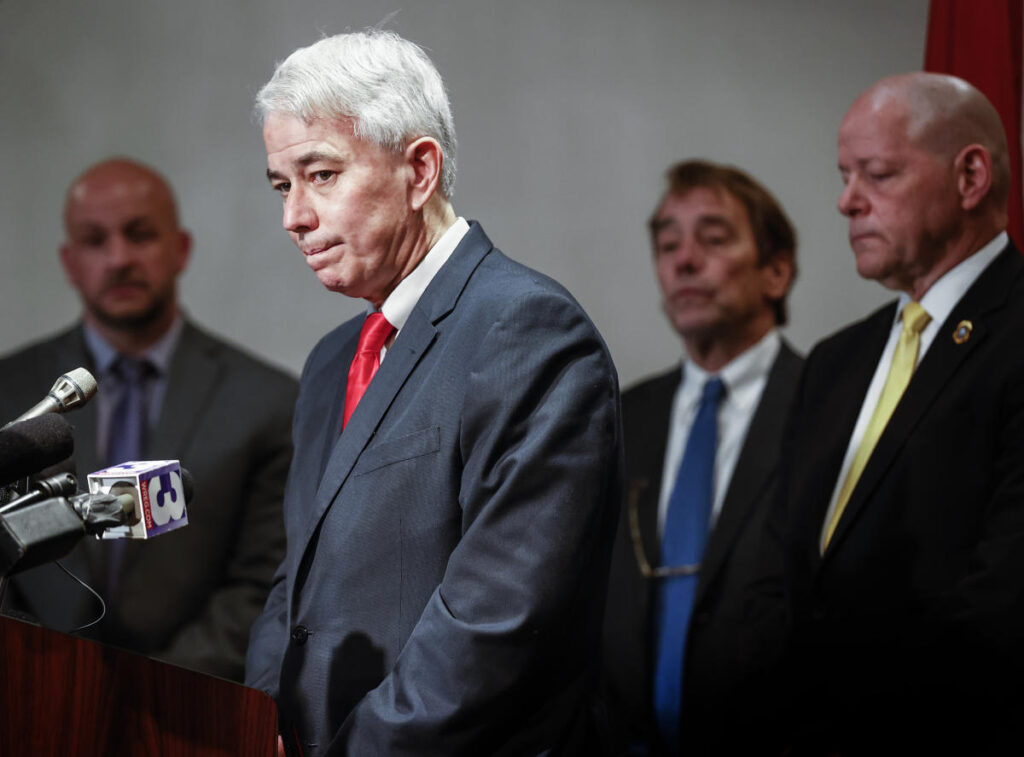In a significant legal development in Tennessee, the Court of Criminal Appeals upheld the constitutionality of a law that grants the state attorney general the authority to handle certain death penalty cases, previously managed by locally elected district attorneys. This ruling overturns a decision made by Shelby County Judge Paula Skahan, who found the legislation unconstitutional, arguing that it infringed upon the powers of district attorneys. This law, passed by the Republican-controlled state legislature in April 2023, permits the attorney general to take over post-conviction capital cases, which include presenting new evidence and arguing for DNA testing, effectively allowing the state to intervene in these critical matters.
The controversy surrounding the law highlights broader concerns about political influences on local prosecutors and their discretion in law enforcement. Opponents contend that the law is part of a national trend whereby Republican governors and legislatures seek to undermine locally elected officials who prioritize certain policies over rigid law enforcement. Critics specifically point out that the legislation targets progressive district attorneys who have expressed hesitance to pursue the death penalty, thereby effectively challenging prosecutorial independence based on political or ideological preferences. Furthermore, defense attorneys fear that the new arrangement could impair the ability to consider crucial factors, such as DNA evidence and claims of intellectual disability, which are vital in the post-conviction context.
The appeals court decision directly influences the case of death row inmate Larry McKay, whose request for a new trial based on emerging evidence is now argued by Attorney General Jonathan Skrmetti rather than the local district attorney, Steve Mulroy, who initially supported McKay’s motion. Mulroy has expressed that the legal changes could impede local prosecutors’ capacities to execute their roles effectively and ensure justice in death penalty cases. Furthermore, McKay’s legal team argues that the intervention by the attorney general represents a legislative overreach that compromises the fundamental responsibilities of district attorneys, fundamentally altering the nature of prosecutorial representation in capital cases.
The implications of the appeals court ruling extend beyond McKay’s case, potentially affecting numerous death row inmates seeking to challenge their convictions without going through traditional appeals processes. The court maintained that while district attorneys have unbridled discretion in initiating criminal prosecutions, the historical involvement of the attorney general in representing the state in such post-conviction matters legitimizes the law’s framework. This sets a precedent that may lead to increased involvement by the attorney general in cases that previously would have remained within the jurisdiction of local prosecutors, fundamentally altering the oversight of death penalty cases across Tennessee.
As this legal battle continues, it reflects a larger trend in which district attorneys across the United States are resisting enforcement of certain laws shaped by political agendas. Instances in states like Georgia, where lawmakers have introduced measures to discipline or remove prosecutors based on their law enforcement philosophy, underscore the contentious relationship between local and state officials within the judicial system. This burgeoning tension raises significant questions about the boundaries of prosecutorial discretion and the checks and balances necessary to ensure that justice is served equitably across differing political and ideological landscapes.
The case of Larry McKay, who has spent over 40 years on death row, underscores the complexities of the judicial process and the impact of evolving scientific understanding on legal outcomes. Advocates for McKay argue that advancements in forensic science could facilitate the presentation of new evidence challenging the validity of prior convictions. As the Tennessee Supreme Court prepares to eventually take up the case, the broader discourse regarding the legitimacy of death penalty prosecutions, the role of political influence on criminal justice, and the evolving dynamics in prosecutorial authority continues to shape the landscape of legal proceedings in the state. The outcome will likely set important precedents for both the future handling of death penalty cases and the autonomy of locally elected district attorneys in Tennessee and potentially beyond.

